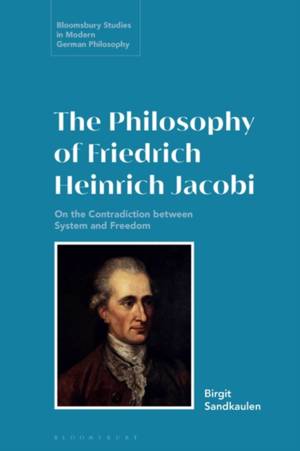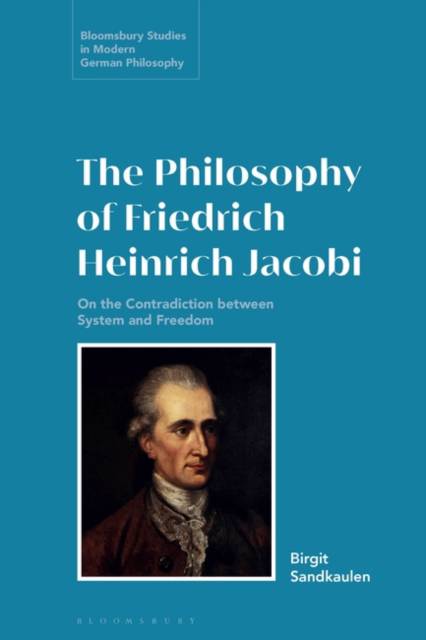
Bedankt voor het vertrouwen het afgelopen jaar! Om jou te bedanken bieden we GRATIS verzending (in België) aan op alles gedurende de hele maand januari.
- Afhalen na 1 uur in een winkel met voorraad
- In januari gratis thuislevering in België
- Ruim aanbod met 7 miljoen producten
Bedankt voor het vertrouwen het afgelopen jaar! Om jou te bedanken bieden we GRATIS verzending (in België) aan op alles gedurende de hele maand januari.
- Afhalen na 1 uur in een winkel met voorraad
- In januari gratis thuislevering in België
- Ruim aanbod met 7 miljoen producten
Zoeken
The Philosophy of Friedrich Heinrich Jacobi
On the Contradiction between System and Freedom
Birgit Sandkaulen
€ 203,95
+ 407 punten
Omschrijving
The contemporaries of Friedrich Heinrich Jacobi (1743-1819) openly acknowledged his towering importance. Both Fichte and Hegel praised him in the same breath with Kant as having launched the philosophical revolution they sought to complete. Yet for more than a century, misrepresentations of Jacobi's thought have stood in the way of a proper appreciation of his insights. In her study of this long-neglected German philosopher, internationally-renowned Jacobi expert Birgit Sandkaulen interprets his philosophical writings in their intellectual context. Originally published in German and translated into English for the first time, this is a major contribution to reading the life, work, and legacy of Jacobi. The biographical chapter on Jacobi's life as a public intellectual was written specifically for this English edition.
Offering new perspectives on Fichte, Schelling, and Hegel, Sandkaulen focuses on Jacobi's specific conception of practical realism. This conception, the source of Jacobi's famous defense of faith and human freedom, matches his critique of the German Idealists: the post--Kantian systems of German Idealism were bound to fail. Sandkaulen shows us that long before 20th-century philosophers took up this line of thought, indeed at the very origin of the epoch-making developments of classical German philosophy, Jacobi articulated a practical, ethical, personal realism that is as philosophically appealing and relevant today as it was in its time.
Offering new perspectives on Fichte, Schelling, and Hegel, Sandkaulen focuses on Jacobi's specific conception of practical realism. This conception, the source of Jacobi's famous defense of faith and human freedom, matches his critique of the German Idealists: the post--Kantian systems of German Idealism were bound to fail. Sandkaulen shows us that long before 20th-century philosophers took up this line of thought, indeed at the very origin of the epoch-making developments of classical German philosophy, Jacobi articulated a practical, ethical, personal realism that is as philosophically appealing and relevant today as it was in its time.
Specificaties
Betrokkenen
- Auteur(s):
- Vertaler(s):
- Uitgeverij:
Inhoud
- Aantal bladzijden:
- 280
- Taal:
- Engels
- Reeks:
Eigenschappen
- Productcode (EAN):
- 9781350235717
- Verschijningsdatum:
- 20/04/2023
- Uitvoering:
- Hardcover
- Formaat:
- Genaaid
- Afmetingen:
- 156 mm x 234 mm
- Gewicht:
- 566 g

Alleen bij Standaard Boekhandel
+ 407 punten op je klantenkaart van Standaard Boekhandel
Beoordelingen
We publiceren alleen reviews die voldoen aan de voorwaarden voor reviews. Bekijk onze voorwaarden voor reviews.









